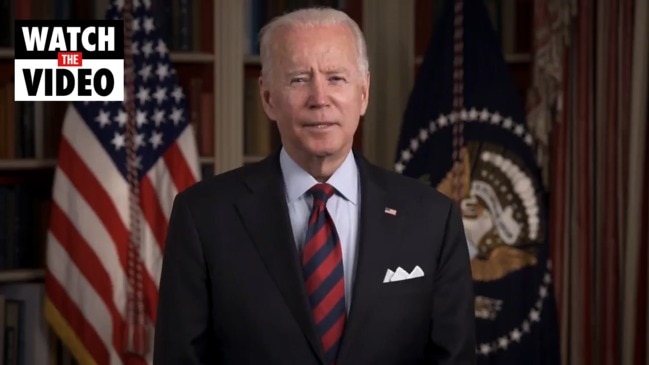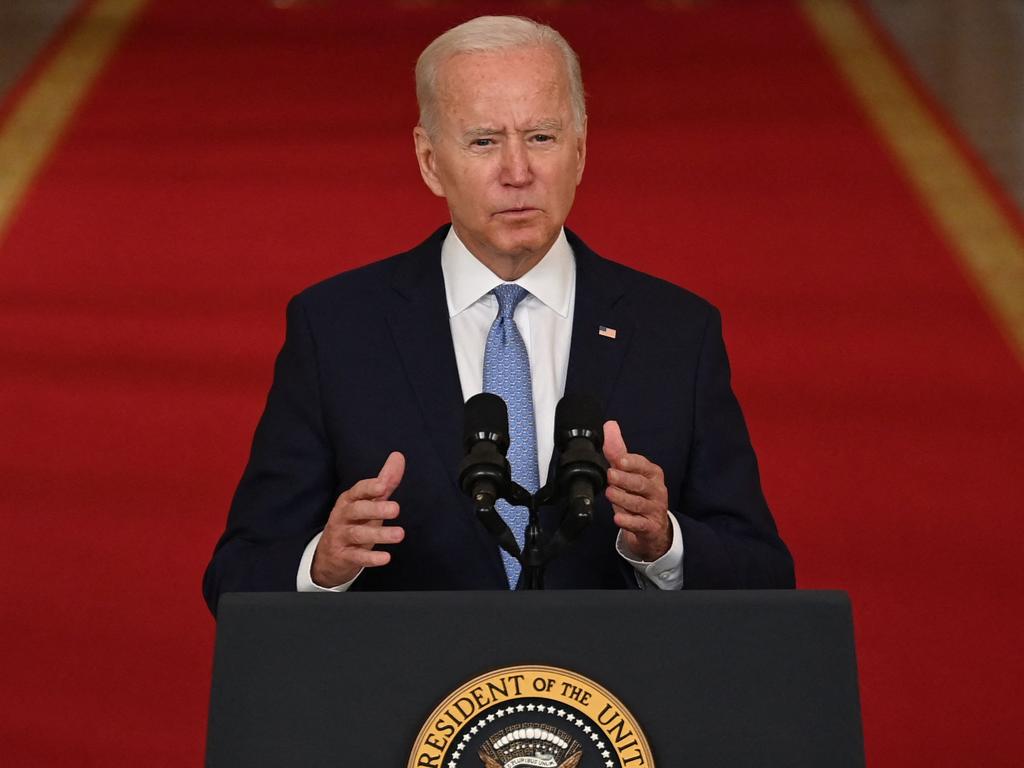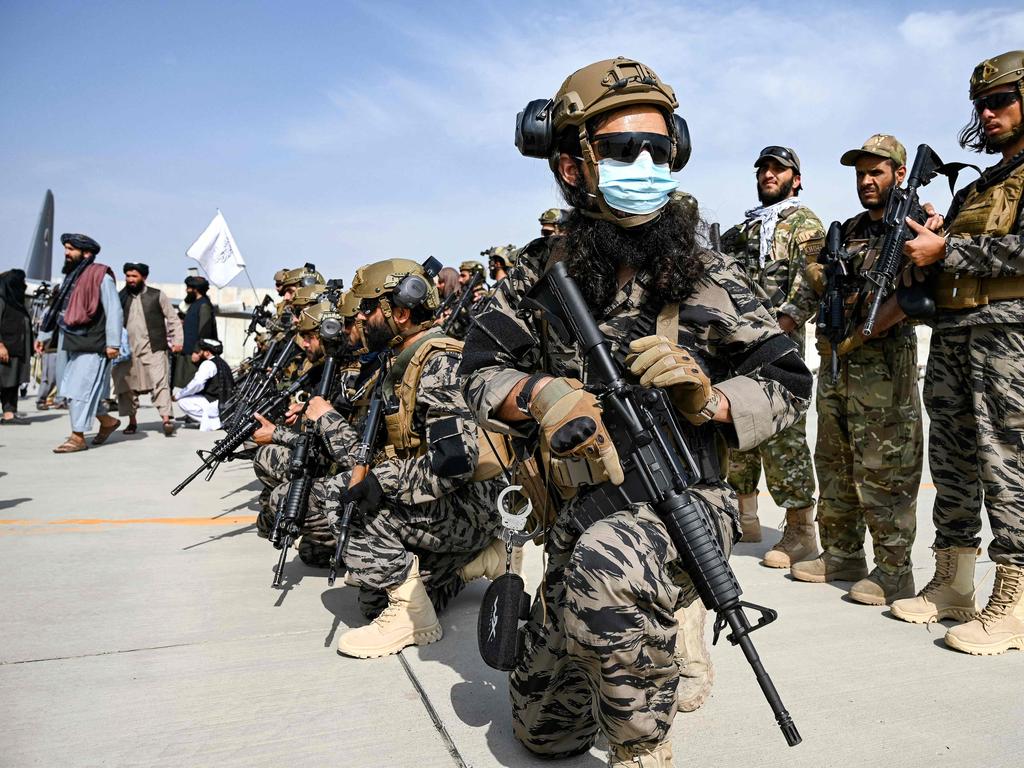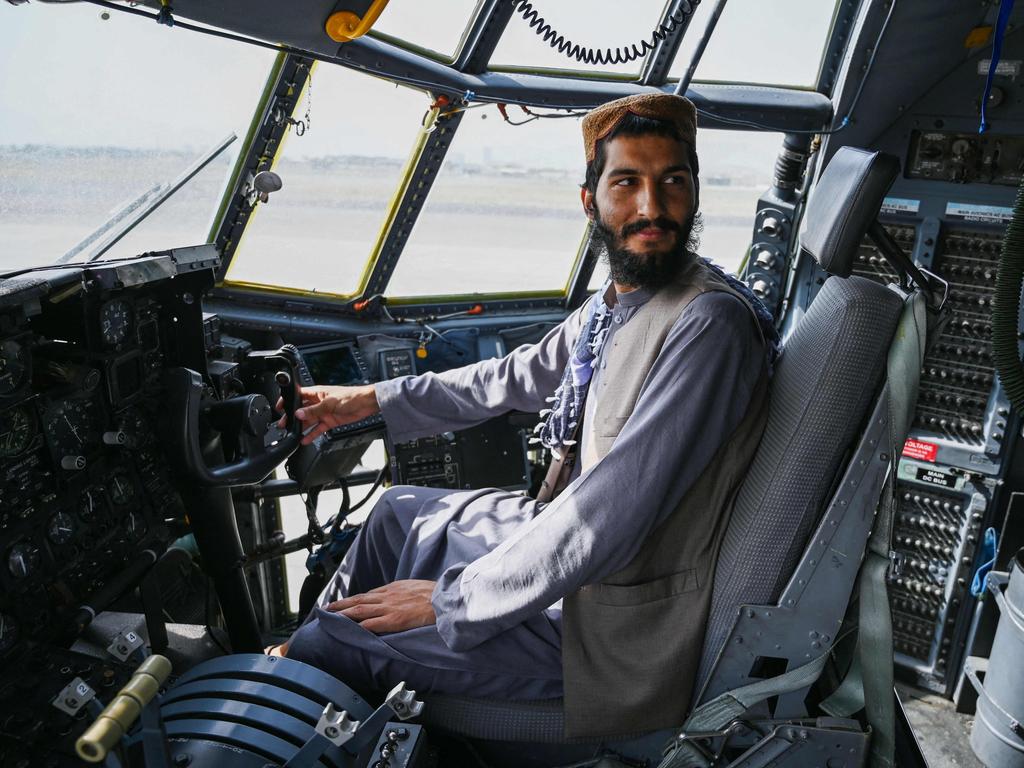Joe Biden flags US global retreat
The US President says Washington will no longer seek to ‘remake’ other countries such as Afghanistan.
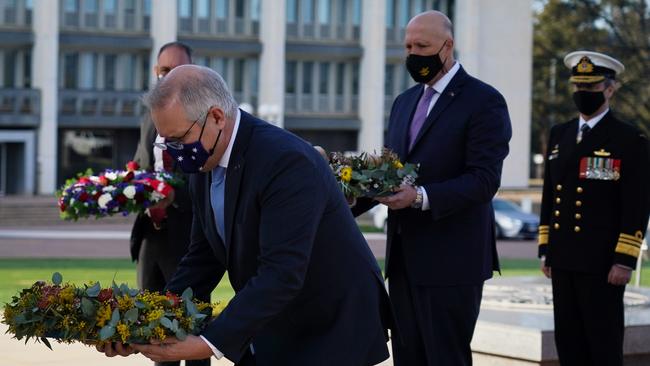
On the 70th anniversary of the Australia-US alliance, Joe Biden signalled a fundamental reset of America’s global priorities, saying Washington would no longer seek to “remake” other countries such as Afghanistan.
His comments will be interpreted by some as a sign of a broader US global retreat, fuelling anxiety in Australia and the Indo-Pacific about America’s willingness to play a leading role in the region in the face of an increasingly aggressive China.
It comes ahead of a key phone call between the US President and Scott Morrison this week when the two leaders are expected to discuss America’s commitment to the Indo-Pacific region following the US withdrawal from Afghanistan.
Speaking at the White House, Mr Biden said that following its chaotic departure from Kabul after a 20-year military campaign in which it ceded power back to the Taliban, the US would “set missions with clear, achievable goals … not ones we’ll never reach”.
“This decision about Afghanistan is not just about Afghanistan. It’s about ending an era of major military operations to remake other countries,” he said.
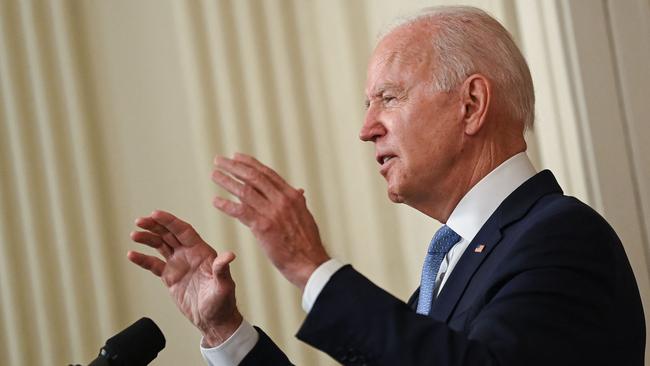
But in separate comments to mark the 70th anniversary of the ANZUS alliance, the President praised the “unsurpassed partnership” between Australia and the US and thanked Australians for standing by the US in every war for more than a century.
Mr Biden said the ANZUS Treaty, signed between Australia, the US and New Zealand in 1951, was a “significant milestone” and was “as essential today as it has ever been, securing safety and prosperity for both our countries”.
“On this anniversary, we reaffirm our commitment to advancing our shared values, democratic norms, global security and prosperity for the next 70 years and beyond,” he said.
Despite the military defeat and the strategic uncertainties created by the US withdrawal from Afghanistan, former prime ministers Julia Gillard and John Howard gave a strident endorsement of the ongoing importance and relevance of the alliance on the day of the 70th anniversary.
Ms Gillard described the partnership as a “natural fit” and a “vital and enduring friendship” for both countries.
“This is an alliance of shared values and hope for the future,” she said. “We are nations that truly believe by human action we can create a better future for the next generation and the generation after that.”

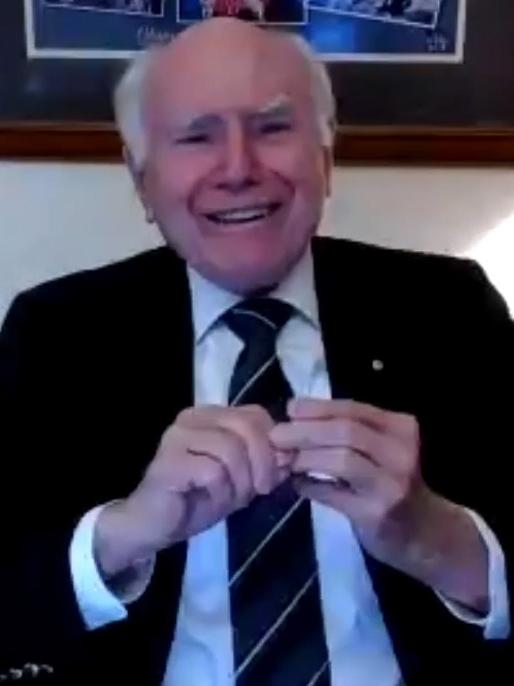
However, she cautioned that there was a need for “deep reflection by Australia and the United States given the circumstances in Afghanistan”.
“There is a lot to think through about what went right and went wrong and what the contemporary posture should be towards Afghanistan and how we hold faith with the people of Afghanistan. We need to work through that,” she said.
Both Ms Gillard and Mr Howard said the ANZUS alliance was more central than ever given the rise of China. Mr Howard, who said the alliance was Australia’s most important and was based on “hard-headed realism”, said it was “hugely important” given Australia’s strategic circumstances.
“China is at once our greatest export destination … but also a nation that has become far more belligerent and aggressive. The American alliance is hugely important in that context,” he told a 70th anniversary virtual event hosted by the US Studies Centre at Sydney University. “We can’t abandon our values, alliances and friends,” he said. “The things that bind you more tightly to another nation are common values.”
Ms Gillard said the “driving shaper” of the US alliance today was the emergence of China. “That has huge consequences for Australia” and would be a “huge shaper of dialogue”, she added.
The Prime Minister told the USSC event the US alliance had been the bedrock of Australia’s security. “For more than a century, we have fought and stood side by side in every major conflict – from the Western Front to the Middle East, from the waters of the Coral Sea to the snows of Korea,” Mr Morrison said.
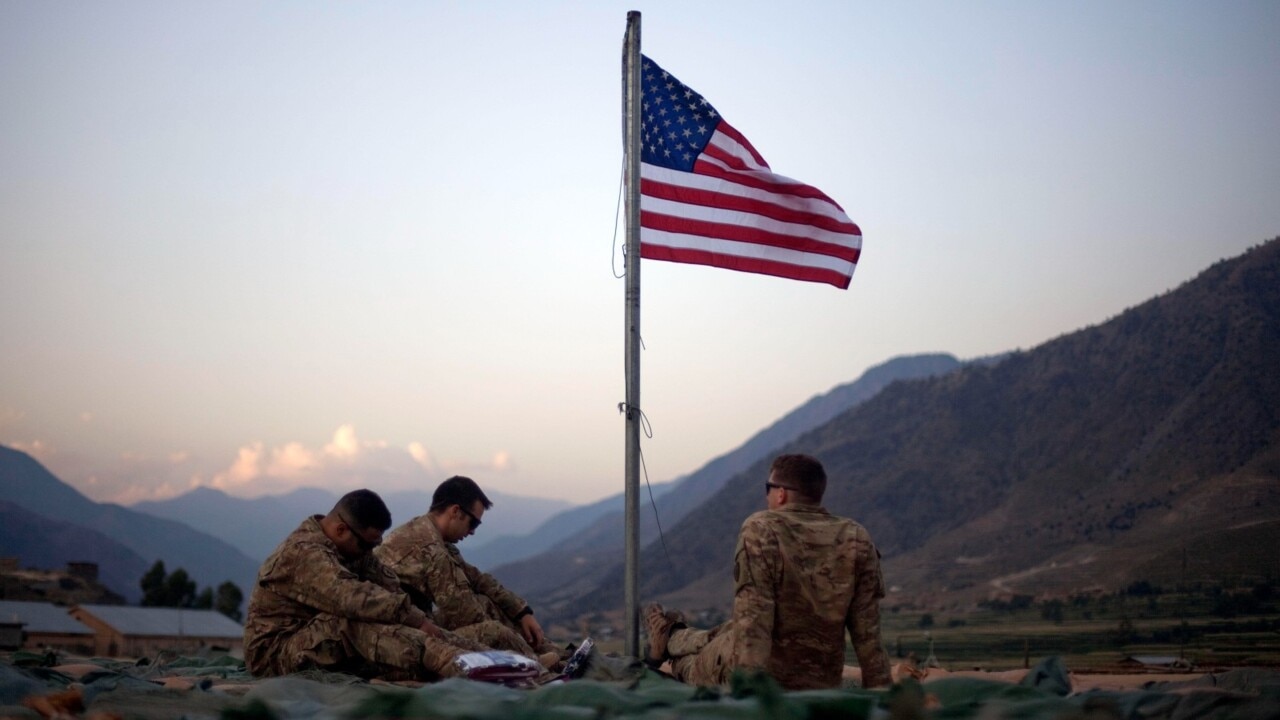
Mr Biden said the US would “never forget” Australia’s support for US defence efforts since the September 11 attacks on the US in 2001, which triggered, for the first and only time, the mutual defence articles in the treaty.
“Australian friends stood with us at that darkest hour just as our two nations stood shoulder to shoulder in every major conflict since World War I,” he said.
The tripartite ANZUS Treaty was signed on September 1, 1951, in San Francisco, “to strengthen the fabric of peace” in the Indo-Pacific region. The architect of the treaty was Australia’s former external affairs minister, Percy Spender, then ambassador to the US. It would not have been negotiated, agreed and signed without his vision and determination.
“As we bring an end to 20 years of military conflict in Afghanistan, Australia is still standing with the US, contributing to efforts to evacuate our people and those Afghans who served by our side,” Mr Biden said.
Some analysts had earlier expressed surprise that Mr Biden had yet to speak to Mr Morrison since the crisis prompted by the US withdrawal from Afghanistan two weeks ago, having made several calls to other world leaders.
“Through the years, Australians and Americans have built an unsurpassed partnership and an easy mateship rounded in shared values and shared vision … proving democracies can deliver in a world of complex challenges,” the President said.
Secretary of State Antony Blinken and Defence Secretary Lloyd Austin issued their own statements to mark the anniversary. “Our alliance is much more than a military pact – it helps underpin the stability of the region and democracy in the Indo-Pacific,” Mr Blinken said.
“Whether we are combating the Covid pandemic, reinvigorating our economies, or advancing co-operation in innovation and education, the US and Australia are there for each other.”
More Coverage
